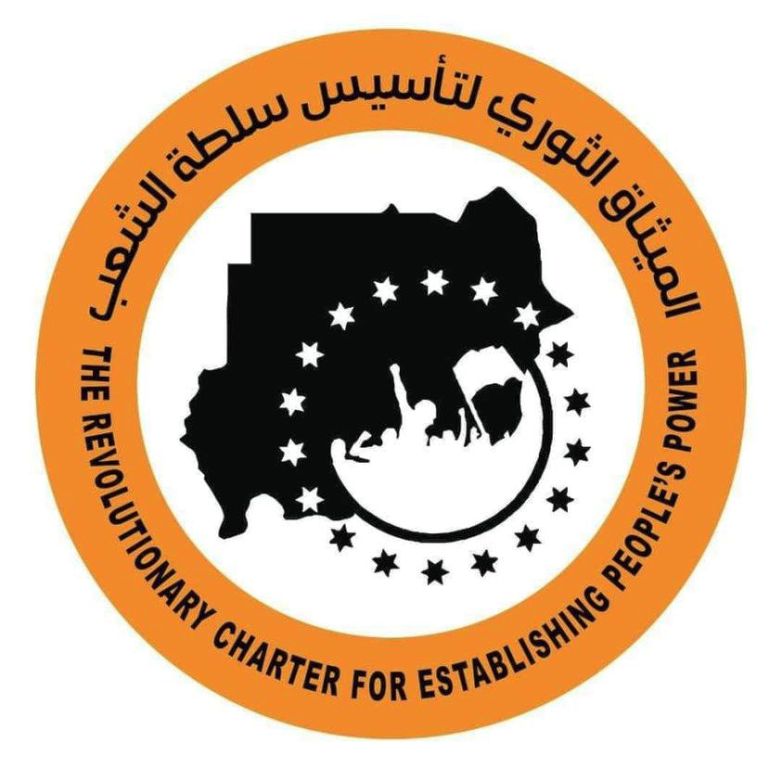55 groups sign new charter for Sudan’s resistance committees
55 resistance committees and revolutionary bodies signed the new Revolutionary Charter for the Establishment of the People’s Authority on Wednesday as a political vision for the resistance committees.
 One of the many anti-coup demonstrations organised by the resistance committees. This one was in November, less than a month after the October 25 military coup (Mosaab Hassouna)
One of the many anti-coup demonstrations organised by the resistance committees. This one was in November, less than a month after the October 25 military coup (Mosaab Hassouna)
Logo of the Revolutionary Charter for the Establishment of the People’s Authority
On Wednesday, 55 resistance committees and revolutionary bodies signed the new Revolutionary Charter for the Establishment of the People’s Power as a political vision for the resistance committees.
The resistance committees have been working for a while to unify two different charters presented by the resistance committees of Wad Madani and Khartoum.
The Technical Committee of the Charter explained in a press statement that the goals and issues raised by the resistance committees will be the basic building blocks for the formation of a unified body that will include all the revolutionary forces.
The unification attempts came after various calls for unity amongst Sudan’s opposition.
The charter provides for the abolition of the 2019 Constitutional Document, the inclusion of the Juba Peace Agreement protocols, and the establishment of a transitional constitution based on the resistance committees’ revolutionary charter. It also stipulates that the (civilian) prime minister is the commander-in-chief of the armed forces.
The charter adopted a decentralised system of government in the transitional period.
The signatories also affirmed their rejection of any calls for direct or indirect negotiations with the coup plotters and called for the continuation of peaceful resistance.
The charter stipulates the overthrow of the October 25, 2021 “military coup elements” and demands accountability of all those involved from both civil and military forces.
The unification of the charters comes in a period of great political turmoil in Sudan. Following the coup, Sudan has been in a political crisis and different groups are pulling in different directions to determine the course of Sudan’s political future.
The mainstream Forces for Freedom and Change-Central Council (the coalition split earlier this year) has proposed their vision for Sudan’s political transition and so have various other groups, including supporters of the coup.
Recently, the SBA drafted a constitutional framework for the transitional period that received broad support, but also criticism. A group of Sudanese women presented a new unified gender-responsive constitutional vision.











 and then
and then